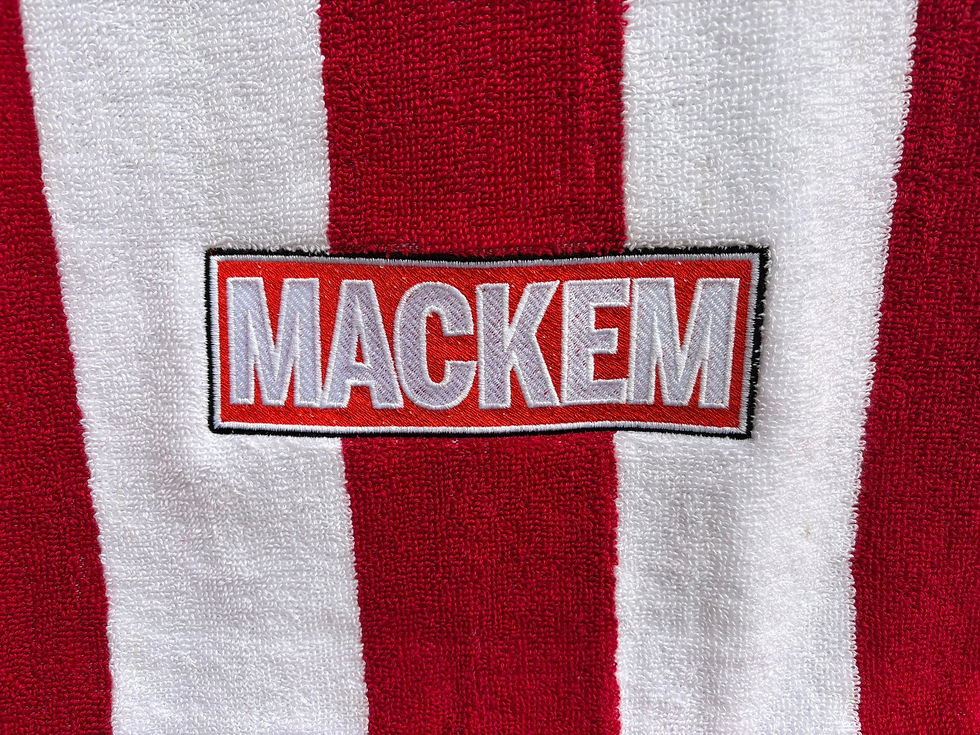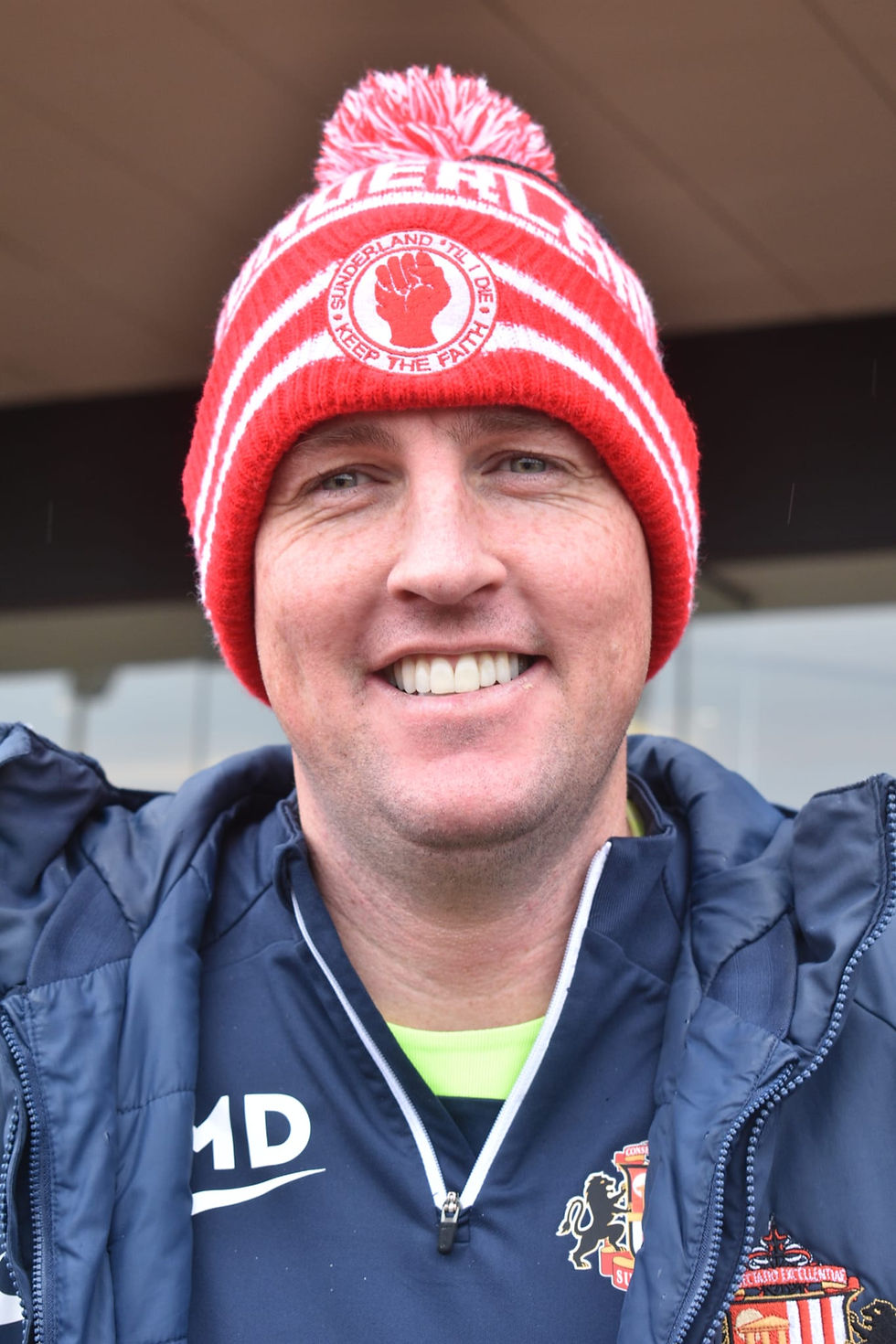THE MYTH OF LUCK
- BY ROBBIE THOMSON
- May 16
- 6 min read

The Myth of Luck: Why Readiness is Everything
No sooner had the final whistle been blown on Tuesday night and as the celebrations erupted from every corner of the Stadium of Light, raucous red and white clad fans emptied out into the mild Wearside evening. In quiet(er) corners of the stands pings and swooshes could be heard emanating from press boxes - emails and messages hurriedly pinged off from phones and laptops to editors, primed for upload or print. The result was in no doubt - Sunderland had beaten Coventry on aggregate and were through to the Championship playoff final against Sheffield United. But, accompanying the result were the subtle (or not so subtle) overtones that Sunderland had been ‘lucky’, ‘outplayed’ - that they would be swept aside by Sheffield United, that they didn’t have the game to compete with a team who had dispatched their play off opponents with a 6-0 aggregate win.
These conclusions are hasty but understandable in certain contexts - when they’re trotted out by opposition fans on message boards eager to downplay a serious achievement in the club’s recent history, it’s understandable. Similarly, when blurted out in frustration by home fans eager to see a side more confident and flamboyant in play it’s easy to see the point being made. But from reporters paid to watch and analyse the games, it’s a ham-fisted way of avoiding what is really going on.
Sunderland’s play-off triumph over Coventry was, at times, a white-knuckled bucket of stress and nerves, but it was also ballsy, disciplined and brave. In his post-match comments, club legend Kevin Phillips commented that Sunderland ‘rode their luck’ to see their ways past the Sky Blues - that may be true, but what is luck, if not preparation waiting for an opportunity?
To anyone paying attention to Sunderland or their diminutive head coach Regis Le Bris this season, this preparation has been there for all to see. In his first statement to the press in June 2024, Le Bris commented “I’m here to pass on my energy and my convictions”. No grand talk of ‘getting the club back to where they belong’ - a statement about energy and conviction. One of those convictions came on the eve of the first game of the season in his pre-match press conference - “you must find the right solutions as a team, not as individuals”. Here, at the genesis of a new campaign, the foundations of collective responsibility were laid - a bedrock of communal understanding and shared goals. Gone were the days of individuals at the expense of the team, ushered in were the days of determination, discipline and busting a gut for the shirt next to you.
But if the talk of quiet determination spoke of cautious evolution, the season crashed into life for Le Bris and his charges more in the style of glorious revolution - sweeping aside all challengers to lose only two of the first 15 games of the season to sit top of the Championship in the middle of November. But behind the results and away from the heady talk of “1999 on repeat” and “100-point seasons”, a more important idea was taking hold. Following the home win over Middlesbrough in September, he stated “we had this feeling in our shape that we wanted to defend together” and having defeated Luton Town away towards the end of October, again remarked "We started well and after, we struggled to apply pressure to their back three. We changed our shape and it was better.” In perhaps his clearest and most obvious signal to the conviction he set to instil within the team, in his post match interview after the win over Derby County in October, Le Bris commented “we kept our discipline and that shape is our foundation”.
Indeed, in every post match and pre match interview Regis Le Bris has given this season he has highlighted, more than any other credential or quality, the importance of ’shape’ and ‘energy’. In a visual word cloud of all the words used in Le Bris press conferences, the three most referenced and therefore the most prominent words are ’shape’, ‘energy’ and ’team’. It is the Le Bris philosophy in visual form - to create a team disciplined to retain and maintain a shape on the field, underpinned by collective energy to achieve a goal. It’s a philosophy that has been stoically adhered to, bought into by the players and trusted in to deliver results.
It is a philosophy that is prepared to forego possession of the ball - in Sunderland’s first 12 games of the season they won nine matches - conceding the majority of possession to the opposition in seven of them. In the first 12 matches, Sunderland only bossed possession in 4 of them - the two straight forward home wins against Oxford United and Derby County and the two away defeats to Plymouth and Watford. The dye was being cast for the season - the Le Bris philosophy worked and to stray from it and break from it’s shape brought defeat. Looking back at the season has only confirmed this point. Despite finishing 4th Sunderland are 12th in the Championship in possession stats - averaging just 49.1% possession across the whole season (Leeds in 1st with 61% for contrast).
Yet it’s in the relinquishing of possession that enables the Le Bris philosophy to become so potent. Whilst sacrificing more than 50% possession across the season, Sunderland sit third, only behind Leeds and Middlesbrough in touches in the opposition box. The structure and discipline created by adhering to the Le Bris shape, means Sunderland retain the energy required to hurt teams at the top end of the pitch. Sunderland, whilst scoring what some might consider a meagre 55 goals in the regular Championship season (10th highest), were 4th in shot creating actions and were second to only Leeds in the number of counter-attack goals scored. Sunderland were the best team at utilising the wings, ranking first in goals created from both the left and right hand side of the pitch and to dispel a myth that counterattacks rely on lumping it up the pitch and catching the opposition napping, Sunderland registered as the highest dribbling team in the Championship season.
The Le Bris philosophy is one that saw Sunderland confirm 4th position and a place in the playoffs with half a dozen games to go. It is a philosophy that allowed him to stockpile the energy required to fuel the tilt at the playoffs. By rotating the team defeats followed towards the end of the season. But despite this Le Bris invoked the earlier season sentiment as he reflected after the final day defeat, “In the end we know our foundations as a team. We know what works and what is positive for us. We are clear on our foundations. The players are ready to react.”
Had the Le Bris philosophy been properly understood throughout the season, the first leg victory and the second leg heroics over Coventry should not have come as a surprise. In both legs Sunderland sacrificed possession (74% to 26% in the first leg and 60% to 40% in the second leg) but made more of the possession they had. Coventry, for all their possession at the Stadium of Light in the second leg, managed 20 shots. Sunderland managed 16 shots with 20% less possession. Sunderland had a higher proportion of shots on target and aside from Jack Rudoni having the highest number of touches in the opposition box with 9, Enzo Le Fee (7), Eliezer Mayenda (5) and Wilson Isidor (3) all managed more touches in the opposition box than the next Coventry player. This was not shaping up to be just another archetypal lucky performance.
Neither was it panicked. Despite the frayed composure and composition of those watching from the stands, the stats bear out a level of control and discipline to Sunderland’s performance. Sunderland made only 13 tackles to Coventry’s 28. Coventry were required to block more shots (8 compared to Sunderland’s 5). Sunderland cleared the ball 20 times in the match, down from their seasons average of 24.9 per match that saw them be the team with the fourth fewest clearances in the Championship.
It was this discipline, composure and shape that dictated the way the pendulum swung as the match played out. And as it has done in other occasions this season, that foundational discipline and shape allowed for the requisite energy to be on hand to press on through extra time - a period in which Coventry, for all their momentum towards the tail end of the season, wilted. A period that conversely for Sunderland, through their adherence and ultimate buy in to a system that, above all else, prioritises shape and energy, saw them brighter, sharper and more able to press home the final decisive advantage. Cue bedlam.
The build up to the final has already begun. The bookies have Sunderland 11/5 compared to Sheffield United’s 4/5 and the column inches are being prepped to be taken up with the inevitable comment that for Sunderland to succeed and reach the Premier League, it’ll require not only a performance for the ages, but a good slice of luck. But what is luck if not preparation waiting for an opportunity?
At 3pm on Saturday 24th May at Wembley Stadium, that opportunity presents itself.
Be prepared




















































